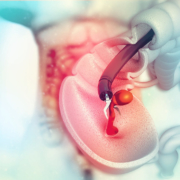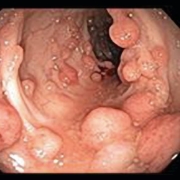What Do I Need to Know About Genetic Testing for Colorectal Cancer?
Genetic factors play an important role in the development of colorectal cancer (CRC). Some people have inherited genetic syndromes that increase their risk for colon cancer. Genetic testing looks for these inherited syndromes along with changes in DNA that are associated with a greater likelihood of developing cancer.
What is Genetic Testing for CRC?
Genetic testing looks for changes in your DNA that are known to be associated with an increased risk of cancer. Generally, there are two ways that genetic testing may be used:
- Before a person develops cancer to determine their level of risk
- Following a cancer diagnosis to see if genetic changes may have contributed to the cancer
According to the American Cancer Society, genetic tests can help show if members of certain families have inherited a high risk of CRC due to inherited cancer syndromes such as Lynch syndrome (also known as hereditary non-polyposis colorectal cancer, or HNPCC) or familial adenomatous polyposis (FAP).
Who is Considered “High-Risk”?
Those with a family history of CRC may benefit from speaking to their primary care physician, oncologist, or surgeon about the importance of genetic testing to identify if there was a mutated gene that predisposes them to cancer. You may be a good candidate for genetic testing for CRC if you have:
- Close family members, such as parents, children, or siblings, who have been diagnosed with CRC
- Many people on one side of your family who’ve been diagnosed with CRC
- A personal or family history of CRC diagnosis at a young age
- A personal or family history of an inherited genetic syndrome that increases CRC risk
- A personal or family history of multiple cancers
- A strong family history of CRC or other cancers that are associated with an inherited genetic syndrome
- More than 10 adenomatous polyps found during CRC screening
What Can I Expect With the Procedure?
If your doctor believes that you’re a good candidate for genetic testing, they’ll likely refer you to a genetic counselor. Genetic testing is typically done using a blood sample. However, it may also use a sample of saliva, cheek cells, or skin. This sample will be sent to a specialized lab that will run the test. After a few weeks, your results will be sent over to your doctor or genetic counselor and you’ll be contacted to discuss your test results and next steps.
How Much Does Genetic Testing for Colon Cancer Cost and is it Covered by Insurance?
Genetic testing can be expensive and can cost between $100 to over $2,000, depending on the nature and complexity of the test. Many insurance providers will cover the cost of genetic testing and genetic counseling if it’s considered medically necessary.
- Most private health insurers cover genetic counseling and testing with low- or no out-of-pocket costs for people who meet certain personal or family cancer history criteria.
- Medicare covers genetic testing for people with a cancer diagnosis who meet certain criteria; you must have a cancer diagnosis to qualify for coverage of genetic testing for an inherited mutation.
- Medicaid programs cover BRCA genetic counseling and testing for qualifying individuals, including those with a known mutation in the family, or specific personal and/or family history of cancer for all but two states: Alabama and Rhode Island.
Nevertheless, always check with your insurance provider to see what’s covered before getting tested. For additional information about insurance coverage, please visit: Paying for Genetic Services.
Kitty Chiu is a Colorectal Cancer Prevention Intern with the Colon Cancer Foundation.









Leave a Reply
Want to join the discussion?Feel free to contribute!